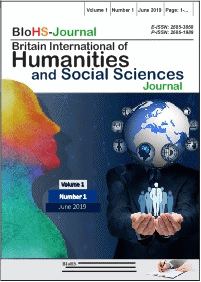Business Judgment Rule and Fairness Standards in the West: A Theoretical Review
Abstract
The application of the Business Judgment Rule (BJR) in the United States has also been increasingly tightened by the necessity of carrying out the duties and authority of directors based on the principle of prudence and efforts to fulfill proper information (transparency and fully disclosure) before the directors take action or decision. In a number of countries, the Business Judgment Rule (BJR) doctrine has been used quite extensively in their legal systems. One of them is in the United States. Basically there are two concepts applying the provisions applied by the American Law Institute (ALI). Second, the provisions that took place in the Delaware court. These provisions have been adopted by several courts. Overall, the Business Judgment Rule and fairness standard are separate research standards used by the court, and one does not feel confused with one another. The Business Judgment Rule analysis does not include a fair analysis, because the duty of care does not require unauthorized transactions to be the object of court examination concerned with fairness standards, only the director acts in good faith, with caution with an information base for that interest , and it does not violate wisdom.
Downloads
References
Emily E. Cassel, “Applying The Business Judgment Rule Fairly : A Clarification For Kansas Courts”, 52 University of Kansas Law Review (June, 2004), p. 1120.
Eric J. Moutz, “Janssen V. Best And Flanagan: At Long Last, The Beginning Of The End For The Auerbach Approach in Minnesota?”, 30 William Mitchell Law Review (2003), p. 491.
Arus Akbar Silondae dan Andi Fanana, Aspek Hukum dalam Ekonomi dan Bisnis, (Jakarta: Mitra Kencana Media, 2010), hlm.3.
Peter V. Letsou, “Implications of Shareholder Diversification On Corporate Law And Organization: The Case Of The Business Judgment Rule”, 77 Chicago-Kent Law Review (2001), p. 181.
Emily E. Cassel, “Applying The Business Judgment Rule Fairly : A Clarification For Kansas Courts”, 52 University of Kansas Law Review (June, 2004), pp. 1120-1137.
Sartika Nanda Lestari, “Business Judgment Rule Sebagai Immunity Doctrine Bagi Direksi Badan Usaha Milik Negara di Indonesia”, Notarius, Edisi 08 Nomor 2 September 2015.



.png)
_.gif)
















_.gif)












